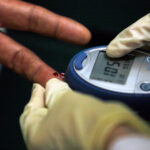Several cases of mycoplasma pneumonia, or “walking” pneumonia, have recently been reported in Johannesburg.
South Africans who have not been vaccinated against the flu should do so urgently, despite the influenza season already peaking, the National Institute of Communicable Diseases (NICD) has warned.
According to the NICD, there are two strains of the influenza virus circulating in South Africa this season [between May and August].
Flu vaccines are developed annually according to predictions of the strains that will be circulating during a particular season, so it is important to get vaccinated every year. “Even people who have already had flu should still get the shot, as there are different strains of the virus currently in circulation in South Africa,” said NICD executive director Shabir Madhi.
“We have the swine flu virus that’s still circulating; it has been circulating since 2009 so it’s not unusual. In addition to it, we have the H2N3 virus, which is a different strain. But in Gauteng, for example, both those strains are circulating concurrently.”
Although flu is a mild illness, complications such as pneumonia and other infections can occur, especially in people with underlying conditions such as diabetes or hypertension, according to the NCID.
‘Insidious onset’
Several cases of mycoplasma pneumonia, or “walking” pneumonia, have recently been reported in Johannesburg. It is caused by a bacterium as opposed to a virus and is a mild form of pneumonia. US-based medical organisation the Mayo Clinic says it accounts for about 20% of all cases of pneumonia and some Johannesburg-based GPs have reported increases in such cases seen this year.
The disease is of “insidious onset with fever, headache and malaise for two to four days before the onset of respiratory
symptoms”, according to the Mayo Clinic.
“We’re in the peak of the influenza season, so that’s probably what’s causing the sort of an increase in terms of the pneumonia cases,” Madhi said.
“It is rare for mycoplasma pneumonia to be fatal. It can [however] cause prolonged [flu] symptoms, but generally tends to resolve itself without any treatment.”
How to prevent flu
- Limit contact with people
who are infected - Cover your nose and mouth with a tissue when coughing or sneezing and throw
the used tissue in a bin - Wash your hands often with soap, especially after coughing, sneezing or
blowing your nose - Surfaces in common areas should be cleaned and disinfected
What to do when you have the flu
- Bed rest
- Drink lots of water and clear fluids
- Take medication if necessary for
symptomatic relief of coughing, fever, nasal congestion and other symptoms.
Source: National Institute for Communicable Diseases
Ina Skosana was a health reporter at Bhekisisa.





